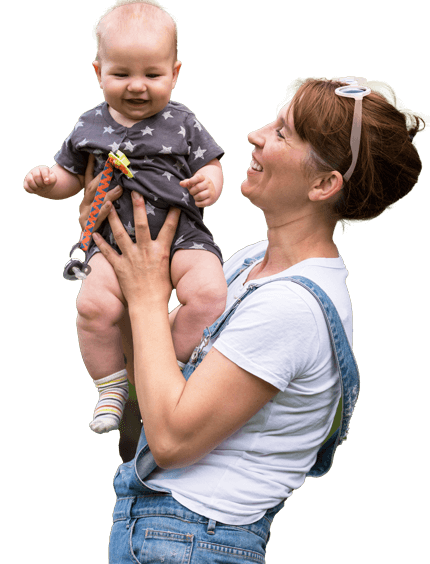Pregnancy is a transformative journey for any woman, marked by joy, anticipation, and sometimes, a few uncertainties.
As more women choose to delay childbirth for various personal or professional reasons, the trend of pregnancy later in life has become increasingly common – with the average age of mother now being 30.
While this decision comes with its own set of advantages and challenges, it’s essential to understand the realities associated with pregnancy later in life. In this blog, we’ll specifically talk about pregnancy after the age of 35, what complications may arise for women of this age, and the benefits of having a child at this age.
What is Geriatric Pregnancy?
A term you may hear when embarking on your pregnancy journey is “geriatric pregnancy” or “geriatric mother” – this is an old medical term used for pregnant women who are 35 years of age or older. More commonly now, this is referred to as Advanced Maternal Age or AMA for short.
How Does Aging Affect Fertility and Pregnancy?
While pregnancy at this age can and does happen, it’s important to understand the realities of Advanced Maternal Age pregnancy.
Fertility Challenges
One of the foremost considerations for women over 35 planning to conceive is fertility. Unlike in their twenties, when fertility peaks, women in their mid-thirties may experience a decline in egg quality and quantity, making conception more challenging. This can lead to longer periods of trying to conceive, heightened anxiety, and possibly the need for fertility treatments such as IVF.
Increased Risk of Complications
Advanced maternal age is associated with a higher risk of pregnancy complications. These may include gestational diabetes, preeclampsia, miscarriage, chromosomal abnormalities (such as Down syndrome), and cesarean delivery. It’s crucial for women over 35 to discuss these risks with their healthcare provider and undergo thorough prenatal screenings to monitor both maternal and fetal health.
Prenatal Testing and Screening
Given the heightened risk of chromosomal abnormalities, prenatal testing and screening become more critical for women over 35. These may include noninvasive prenatal testing (NIPT), amniocentesis, and chorionic villus sampling (CVS) to assess the baby’s genetic health. While these tests offer valuable insights, they also come with their own set of considerations, including the risk of miscarriage associated with invasive procedures.
Lifestyle Adjustments
Pregnancy after 35 often prompts women to reevaluate their lifestyle choices. This includes maintaining a healthy diet, regular exercise, and managing stress levels effectively. Additionally, women may need to abstain from certain activities or substances that could pose risks to pregnancy, such as alcohol, smoking, or certain medications.
What Are The Benefits of Having a Child Later in Life?
There are several benefits of having a child later in life, some of which may surprise you.
1. Emotional Maturity and Stability
By the time you reach their mid-thirties, you often have a better understanding of themselves, your goals, and your priorities. This emotional maturity can provide a solid foundation for parenting, enabling you to navigate the complexities of raising a child with greater patience, wisdom, and resilience.
2. Financial Security
Many people in their thirties have established their careers and achieved a level of financial stability that can provide a comfortable environment for raising a child. This financial security can alleviate some of the stress associated with parenthood and allow parents to focus more on enjoying their time with their child.
3. Established Relationships
Couples who choose to have children later in life often have more established and stable relationships. They’ve had time to build a strong foundation with their partner, fostering open communication and shared values, which can contribute to a healthier and more supportive parenting dynamic.
4. Career Advancement
Waiting to have children can allow individuals to focus on their careers during their twenties and early thirties, potentially leading to greater professional success. This can provide a sense of fulfillment and satisfaction that can positively impact their role as parents.
5. Increased Life Experience
With age comes a wealth of life experience, including travel, education, and personal growth. These experiences can enrich the parenting journey, offering valuable perspectives and insights that can be passed down to the next generation.
Wanting to have a baby at an older age can be a stressful and scary situation, but it isn’t impossible – in fact, it’s really very common. Whether you are thinking about getting pregnant or are struggling to get pregnant, Fertility Partnership is here with a helping hand to guide you through.
Reach out to Fertility Partnership today to schedule a consultation.




